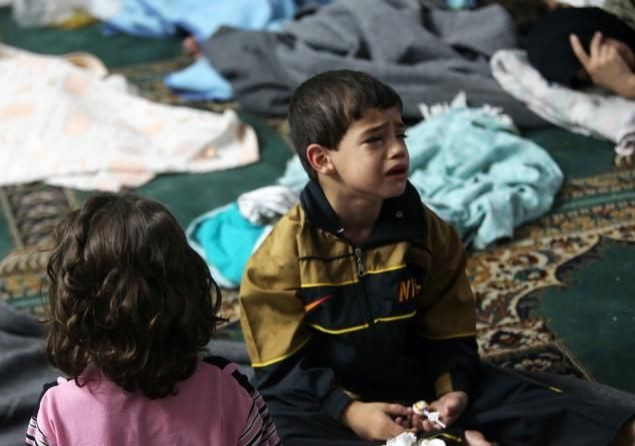Chemical Weapons In Syria May Have Killed Hundreds Of Civilians; Foreign Ministers Blame Assad's Regime For Massacre

Disturbing images from a Damascus suburb in Syria are surfacing: children and civilians lying unconscious or writhing on the ground, struggling to catch their breaths, foaming at the mouth, their skin grey-colored. Are these images proof that chemical attacks have become a weapon in the Syrian civil war?
Deaths of hundreds and possibly thousands of civilians in Damascus on Wednesday are supposedly linked to chemical weapons, but this is not yet verified. The United Nations is currently investigating by bringing in a team of chemical weapons experts led by Angela Kane.
On Saturday, Médecins Sans Frontières (MSF), or Doctors Without Borders, released a report stating that hospitals in Damascus had treated 3,600 patients showing “neurotoxic symptoms in less than three hours on the morning of Wednesday, August 21, 2013.” MSF supplied hospitals with atropine, which is used to treat neurotoxic symptoms.
The Syrian civil war has been raging for two-and-a-half years. In June, the U.S. confirmed that Syrian President Bashar al-Assad used chemical weapons against the rebel forces, crossing what Obama called a “red line.”
Though Obama still has not pointed any fingers in the recent outbreak, William Hague, British Foreign Secretary and First Secretary of State, said, “We do believe that this is a chemical attack by the Assad regime on a large scale, but we would like the United Nations to be able to assess that.”
France’s foreign minister, Laurent Fabius, likewise joined Hague’s opinion on Saturday when stating that Assad’s regime must be responsible for the “chemical massacre.” Turkey also declared that “all red lines have now been crossed.” Though Obama has warned the Syrian government many times against the use of chemical weapons, calling it “totally unacceptable” and a “tragic mistake,” the U.S. has not done anything to back up those threats.
Russia, however, as an ally of the Syrian government, stated that “this criminal act was clearly provocative” as “accusations against government troops [were] posted several hours before the so-called attack.” Syria’s information minister countered the claims of activists by calling the chemical attack “a disillusioned and fabricated one whose objective is to deviate and mislead” the UN.
Effects of Chemicals
Nerve gas is one of the deadliest types of chemical weapons. Antidotes, if applied early — within the first hour of poisoning — could be used to help save lives, but treatment must be immediate. Long-term exposure to such gas could cause restricted breathing and brain damage. The nerve gases that experts assume have been used in Syria are tabun, soman, and sarin — gases that affect transmissions between nerves, leading to muscle paralysis in the diaphragm and heart.
Atropine is a generic medication used in emergency situations to increase heart rate and reverse poison effects. It is included on the World Health Organization’s “Essential Drugs List” as a basic medicine that should be stocked in all hospitals. With the large amount of people affected by the chemical poison, however, it is uncertain whether Syrian hospitals will have enough atropine to treat all the cases.
In the midst of the international outcry, Médecins Sans Frontières noted that the symptoms most likely were the result of chemical weapons. “MSF can neither scientifically confirm the cause of these symptoms nor establish who is responsible for the attack,” Dr. Bart Janssens, MSF director of operations, said in a Saturday press release. “However, the reported symptoms of the patients, in addition to the epidemiological pattern of the events—characterised by the massive influx of patients in a short period of time, the origin of the patients, and the contamination of medical and first aid workers—strongly indicate mass exposure to a neurotoxic agent."
"This would constitute a violation of international humanitarian law, which absolutely prohibits the use of chemical and biological weapons," Janssens added.



























